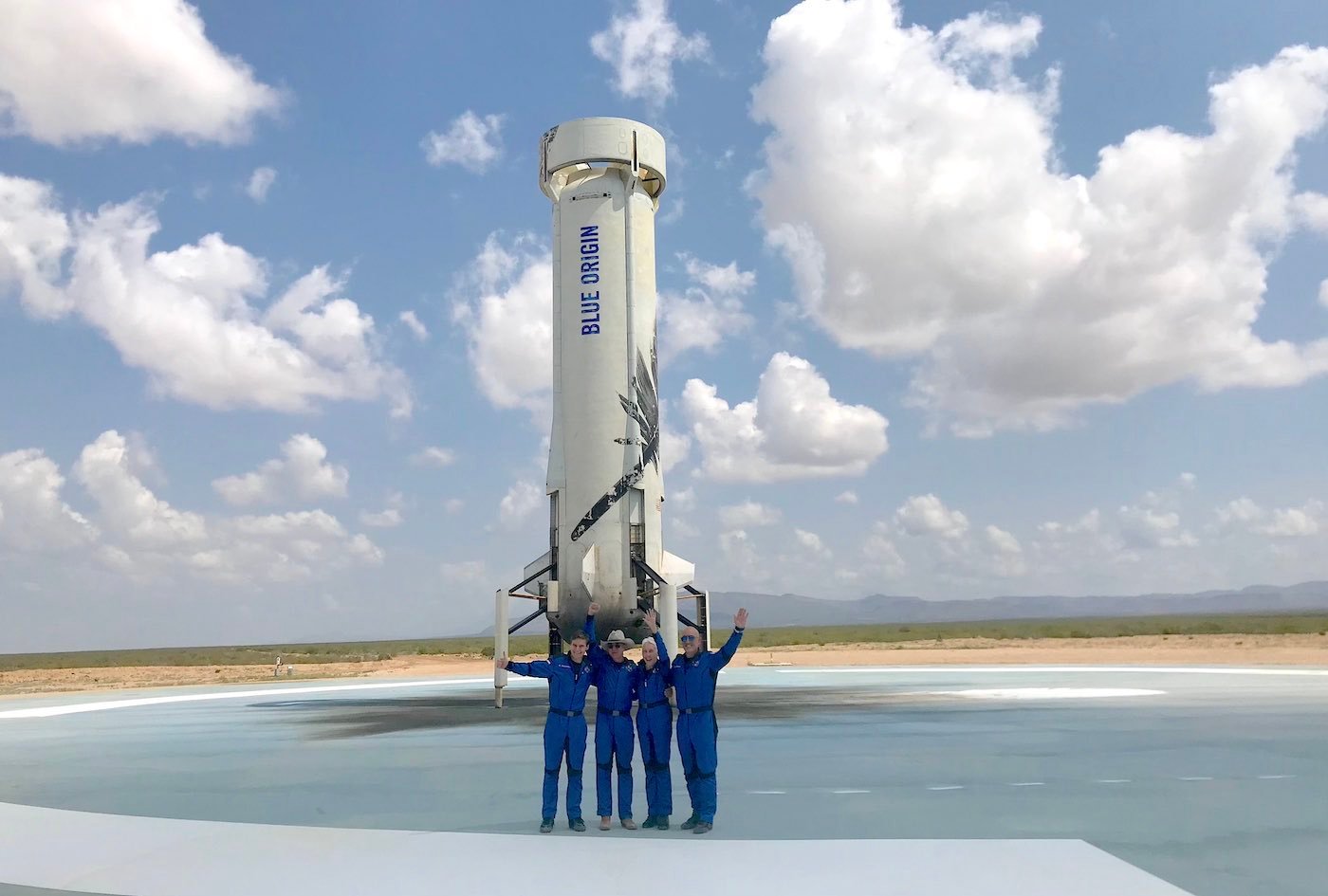Jeff Bezos’s space venture, Blue Origin, has marked a significant milestone with the successful launch of its New Shepard rocket, signaling a confident stride towards the resumption of its crewed suborbital space trips. This launch, the first since an uncrewed crash over a year ago, not only showcases Blue Origin’s resilience but also underscores its pivotal role in the burgeoning space tourism sector.
Key Highlights:
- Blue Origin successfully launched its New Shepard rocket for the first time since an uncrewed crash in September 2022.
- The launch carried a payload of science experiments, aligning with Blue Origin’s commitment to advancing space research.
- Following a year-long investigation by the Federal Aviation Administration (FAA), Blue Origin implemented corrective actions, including the redesign of certain engine parts.
- The successful mission, NS-24, paves the way for Blue Origin to resume taking passengers on suborbital flights, competing directly with Virgin Galactic in the space tourism market.
- Blue Origin is also advancing its heavy rocket, New Glenn, expected to undertake its maiden flight next year, further expanding its capabilities in space exploration.
The recent launch was pivotal for Blue Origin, marking its return to flight operations after the FAA concluded its investigation into the 2022 crash. The investigation mandated Blue Origin to undertake significant corrective actions, focusing on the redesign of engine parts that were identified as the cause of the accident. This successful mission is a testament to Blue Origin’s commitment to safety and innovation, laying the groundwork for the next phase of crewed flights.
Blue Origin’s New Shepard program has been at the forefront of suborbital space tourism, offering passengers the unique experience of weightlessness and stunning views of Earth from space. Despite the setback from the 2022 crash, Blue Origin’s ability to swiftly address the FAA’s concerns and return to flight operations underscores its resilience and dedication to its vision of future space exploration. The successful launch of NS-24, carrying 33 science payloads, also highlights Blue Origin’s role in advancing scientific research, providing invaluable zero-gravity conditions for experiments.
As Blue Origin looks to the future, the development of its New Glenn rocket is particularly noteworthy. Standing at an impressive 98 meters (320 feet) high, New Glenn is poised to significantly expand Blue Origin’s capabilities, enabling the delivery of up to 45 metric tons into low Earth orbit. This ambitious project not only signifies Blue Origin’s commitment to advancing space technology but also its potential to contribute to a range of missions, from commercial satellite launches to deep space exploration.
The successful launch of NS-24 is a critical step for Blue Origin, not only in terms of resuming its crewed space tourism flights but also in solidifying its position in the competitive landscape of private space exploration. With Virgin Galactic also making strides in the space tourism sector, the successful return to flight operations by Blue Origin marks a significant moment in the race to commercialize space travel. As Blue Origin continues to innovate and expand its capabilities, the space industry watches closely, anticipating the next milestones in humanity’s quest to explore the final frontier.



















